
Last fall, I had 29 days of woodcock hunting, most of it in my home coverts in southeastern Ohio’s Hocking River Valley, with a couple of bonus road trips thrown in to destinations where grouse were a possibility, too: an early October week in north central Michigan with four old bird camp pals and five days in early November in the Berkshires of western Massachusetts with a group of new upland friends. Considering routine daily commutes to home coverts, long distance out-of-state travel, anxiety produced by unusual weather conditions that fluctuated from drought to sleet and the perpetual nagging suspicion that time afield subtracts from normal domestic and work-a-day duties, that month of pursuit amounts to an intensely compressed physical/emotional experience. It seems natural to feel a letdown when the game is over for the year and equally natural to want to revisit that part of the past to discover what sense can be made of it.
In six decades of uplanding, I have always dreaded the moment at the end of shooting season when the air goes out of the balloon, that inevitable moment when I am faced not only with the question of what to do next to occupy my time but how to explain the sudden onset of relative inactivity to my bird dog, which surely deserves better. Even the finality of necessary end-of-season tasks like cleaning shotguns, sewing torn brush clothes, tending to hunting gear, reorganizing equipment, etc., seemed somehow loathsome and to be avoided at all costs in order to extend the hunt vibe. I confess that’s a form of denial, clear and simple, to which I plead, “Guilty!”
This story is from the Spring 2023 edition of The Upland Almanac.
Start your 7-day Magzter GOLD free trial to access thousands of curated premium stories, and 9,000+ magazines and newspapers.
Already a subscriber ? Sign In
This story is from the Spring 2023 edition of The Upland Almanac.
Start your 7-day Magzter GOLD free trial to access thousands of curated premium stories, and 9,000+ magazines and newspapers.
Already a subscriber? Sign In
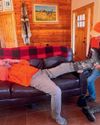
THE BIG HURTS
my Uncle Pat once told me that both pain and disappointment were good:“The more of those you have experienced,” he explained, “the longer you have lived; suffer but a little, and you’re in an early grave.
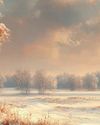
Day's End
NEAR MISSES
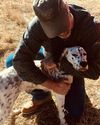
Hunting Dog Hypoglycemia
The first time I ever saw a dog have a seizure from hunting dog hypoglycemia was 25 years ago while hunting pheasants in western Kansas.
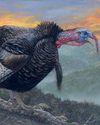
Profile of an Artist: MATT DOYLE
Throughout Matt's life, there has always been an active passion for the great outdoors. As a young Pennsylvanian boy, his dad and grandfathers would take him out fishing and later hunting to share their deep-rooted respect and enjoyment for God's country. It became very clear that their passion for the outdoors would soon develop his passion for it as well.
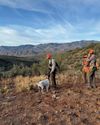
DESERT CATHARSIS
Miles of sagebrush and grasslands slipped past during the 10-hour drive between Bozeman and Denver.
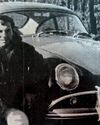
RED CAR WHITE DOG:
A Riff on Sporting Vehicles and Other Matters
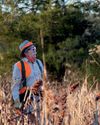
UENATOR CAUE (HUNTER BEWARE) A FIELD GUIDE +O HUNTING LODGES
From ice bars to plywood shacks, in-room hot tubs to a kitchen staff uprising, the hunting lodge experience can be fascinating and frustrating.
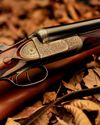
Charles Helles & Sons, London
“Some enchanted evening ... you may see a stranger across a crowded” – gunroom.
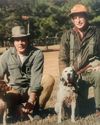
ON POINT: Finding My Way with the Help of an English Setter
Becky came into my life in a rather unusual way. My friend Tom McGuane had just bought a home on Mobile Bay as a place to retreat from the cold winters of his Montana ranch.
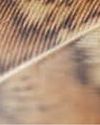
Tail feathers - STANDARDS AND PRACTICES
\"An armed society is a polite society,\" the NRA says in one of its dicta, cribbed from Robert A. Heinlein, a 20th-century American science fiction writer.